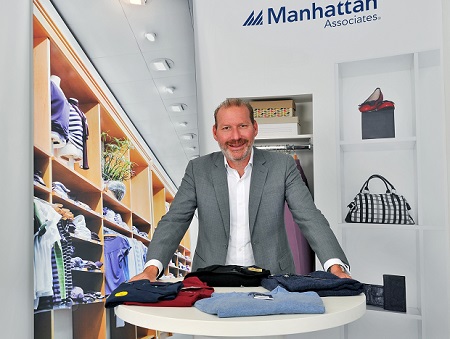The rise of ecommerce has made seasonal shopping patterns much harder to predict. Craig Summers, UK Managing Director, Manhattan Associates looks at how the idea of one peak period has changed for retailers and how best they can prepare their operations.
Whilst we are enjoying an uncharacteristic English summer, Christmas may seem a million miles away. But, as is customary in the retail world, brands far and wide will be setting up their plans to survive the busiest time of the retail calendar. However, as the high street continues to evolve – despite the news that it is dying – social shopping and ecommerce continue to boom and consumers are more demanding than ever. Let’s face it, peak season is not as we once knew it!
The Key Peaks
Peak is no longer confined to the high street, nor the months of November and December. The more than pleasant weather, the hype around this year’s world cup and other spikes in national activity, like the royal wedding, have all played a part in the ups and downs of this year’s retail trends. All of these factors, coupled with the emerging use of technology in retail, means that brands must now take learnings from the entire year to help them manage any peak, not just the one that happens around 25th December.
An analysis on last year’s Christmas period will no longer be enough, peaks are now based on culture, lifestyle, weather and even political change. Retailers should have their businesses set up for this throughout the year so they won’t need to worry about how they manage the traditional peak, as it will just be classed as another busy period.
Survival Kit
The key retail survival tactic during traditional peak season is often to hire a plethora of Christmas temps to help deal with demand and then let them all go in January. The admin headache and cost implication is a nightmare and most of the staff are not as efficient or knowledgeable as they could be as they have a very quick onboarding period.
Instead, retailers should arm themselves with tools that combine the traditional workforce with the workforce of the future: technology. Gone are the days of clunky, eye-watering updates, which take up time and put systems on hold – retailers don’t have to put up with this anymore. The best cloud-based tools can be flexed to accommodate busy or quiet periods at any time of the year without having to panic-hire an army of new staff, allowing both man and machine to work together and better manage the resources available. It also means that retailers don’t have to dread the IT blackout that often occurs when stores and online channels can’t cope with an increase in demand. Simply put, the retailers that are still running on their own physical servers are falling behind, especially when it comes to managing peaks. By adopting the latest cloud technologies, retailers will open up a new found flexibility to seamlessly manage an increase in demand whilst still driving a better customer experience all year round, without risking brand damage or impacting revenues.
Surviving the climb
The challenges faced around any peak in demand or sales can spell disaster when not managed correctly. But those retailers that take note of customer behaviour, key trends, and the kinds of demands that are being made throughout the year, will be the ones that handle Christmas peak without a concern. In today’s ever demanding environment it’s no longer just about surviving the peak, it’s about learning from the entire climb.
By Craig Summers
UK Managing Director
Manhattan Associates

